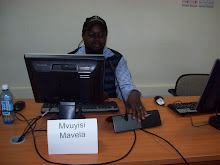This blog seek to address and identify disadvantages of having a workers union which is aligned to the ruling party. In doing so, I will use certain case studies to illustrate the danger of trade union being infiltrated by ruling party and the manipulation of greediness of its own members should they be incorporated to govern bodies of the ruling party.
The trade union’s primary concern is to strive to better the working conditions of its workers and to see to it that workers are compensated fairly for the profit they bring to their respective companies. For this reason, a workers union needs to be allergic to any form of alliance with specific political party especially the ruling party. In Namibia, the worker’s union was in alliance with ruling party and its National Executive Committee member were offered senior position to government departments and as a results they found themselves being kept busy with government issues instead of worker’s related issues. In some extent they were easily silenced by being reminded about their commitment to the alliance and not to combat government policies publicly.
Herbert Jauch (2004) described these form of alliance between trade union and ruling party as “ideological onslaught”. The reason for his labelling was based on the fact that, trade unions in Namibia found it difficulty to cope with neo-liberally policies of government with those of the ideology of nationalism that was embraced by SWAPO since its inception. At independence, nationalist policies were coupled (in often contradictory ways) with the global onslaught of neo-liberalism. Entangled in the national liberation paradigm and at the same time confronted with a global wave of neo-liberal policies, trade unions found it difficult to clearly identify and articulate the specific needs and aspirations of their working class base. Instead, they were drawn into continuous compromises in the name of the ‘national interest’ – as defined by government.
Another dilemma was around union empowerment. As unionists started serving on company boards, they had to adjust to business perspectives of profit maximisation, restructuring and cost-cutting exercises which clashed with traditional union values of socio-economic justice, living wages, security of employment and elimination of inequality.
So when one argue for independency of trade union in South African context, one had to acknowledge the current issues in hand. For instance, the current stance of Congress of South African Trade Union (COSATU) is that, for next year National election in 2009 they proposed a 30% representative in government structures as form of empowerment of its National Executive Members (NEC). Their logical explanation is that they want to influence directly the structures of governance, more especially policies which contradicts workers rights. However, one has critically analyze this exercise of empowering trade unionists as some strategically emergence exit for the ruling party to silenced to vocal trade unionist and to yard stick them to compromise their party stance when it comes to government policies. How on earth a unionist can agree to privatisation while its policy is fighting for equal distribution of the wealth and to advance the idea of the workers to own the means of production
One has to be constantly reminded about what happened to a former unionist member Mr. Mbazima Thsilowa who was elected to be a Gauteng Premier and has practically done less to what was prophesised by workers. Instead he was more involved in government issues than union issues and in some extent workers were Toyi-toyi (Marching) against his administration .This resulted to internal politics as number of trade unionists was striving to acquire highly paid positions and factions were the awarding ornament of the day.
To date, the trade unions are affected by factions of the ruling party who favoured an outstood (Mpumalanga’s resolution) former President of the Republic Mr. Thabo Mbeki and those who favour the new breed leadership under the current president of the ruling party.
In all what workers want is the firm and independent workers union which is free from any political ideological influence. As one has studied so many alliances in different countries between trade union and ruling party, one can not help to observe Chrystal clear defiance and betrayals of workers interests.
In conclusion, there is no recognizable agreement between the jackal and Sheppard without involving the sheep. Such an agreement is based on betrayal.
Tuesday, December 2, 2008
Subscribe to:
Comments (Atom)

